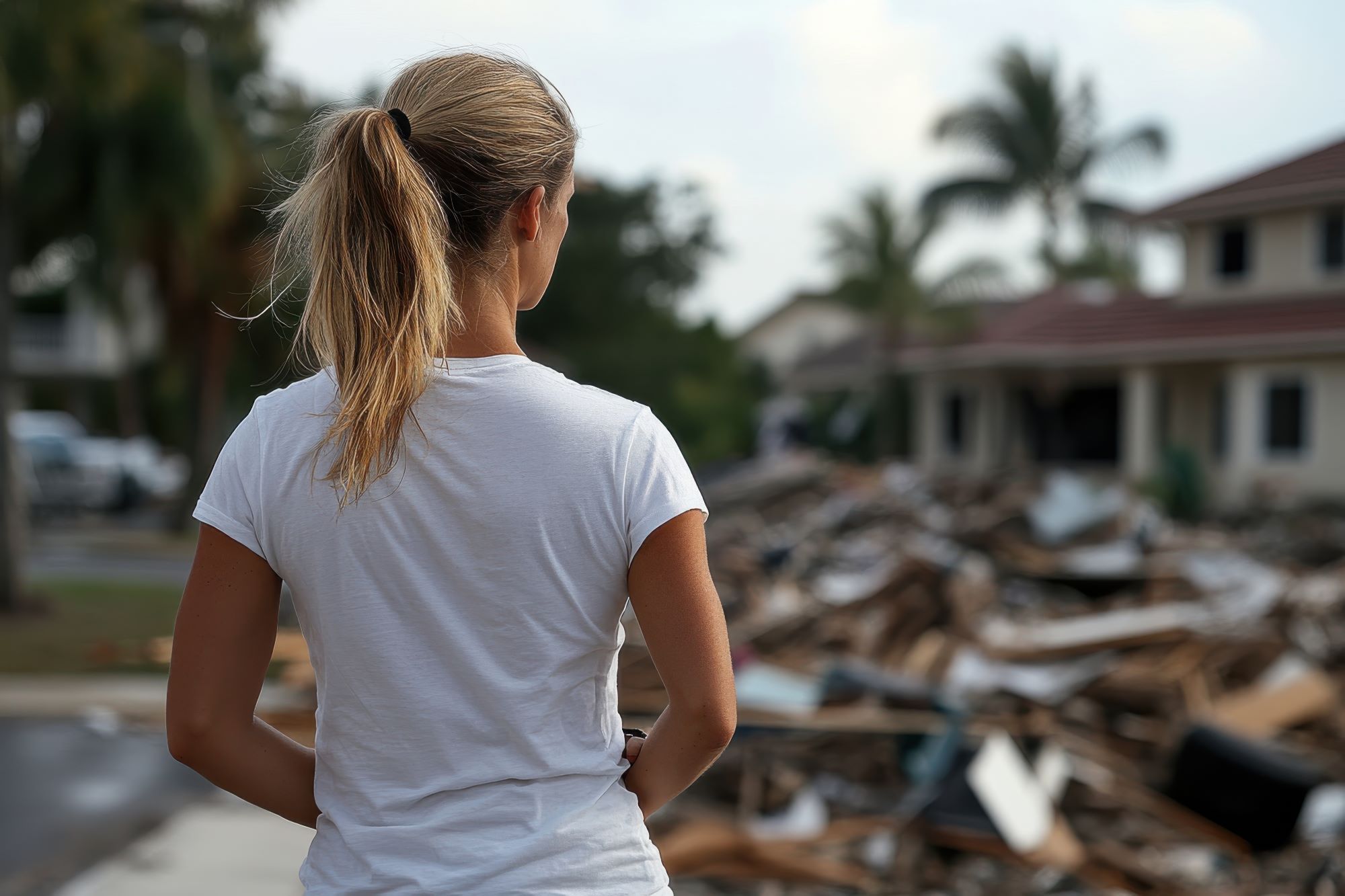By: Karen Schwartz Triana, LMHC and Yvette Triana, LMHC
As we recover from the aftermath of a hurricane, the disruption to daily life can feel overwhelming. The loss of routine, physical damage, and emotional toll create an environment where stress and anxiety easily build. While external circumstances may be chaotic, using Cognitive Behavioral Therapy (CBT) can help bring back a sense of stability by reshaping thought patterns, emotions, and behaviors. Here are three CBT-based strategies to help regain balance and restore your routine in the aftermath of a storm.
1. Reframe Negative Thoughts
Natural disasters like hurricanes cause pain, trauma and people frequently have pessimistic thoughts like “Nothing will ever be the same” or “I’ll never be able to recover.” These kinds of ideas might exacerbate anxiety and make it challenging to get back to your regular activities.
CBT teaches us to challenge these negative thoughts and reframe them. Instead of thinking, “Nothing will ever be the same,” reframe this as, “While things have changed, I can rebuild and adjust.” This helps you take a more impartial view of the situation rather than downplaying how important it is. By identifying and reframing negative thoughts, you reduce the emotional intensity, making it easier to focus on rebuilding your routine.
2. Break Tasks into Manageable Steps
The amount of work that needs to be done after a hurricane might seem overwhelming, whether it is clearing up debris, submitting insurance claims, or repairing damaged property. Avoidance habits may result from this, when you feel too overwhelmed to start.
One useful strategy for overcoming this emotion is to use CBT techniques to divide things into smaller, more manageable steps. For example, concentrate on one problem, like cleaning one room or calling your insurance provider, rather than feeling like you need to repair everything at once. Behavioral activation is a method that enables you to approach problems without being intimidated by their magnitude.
Making a list and marking off little chores increases motivation and lowers anxiety because it provides a sense of success. Each completed step helps reestablish a routine, reinforcing feelings of control and progress.
3. Practice Thought-Action Fusion for Sleep Hygiene
After stressful events like a hurricane, sleep disruption is typical, and sleep deprivation can exacerbate distressing sensations. Restoring proper sleep hygiene is a crucial component of getting back into a healthy pattern, and CBT offers useful solutions for this. Thought-action fusion, or realizing that just because you think you won’t sleep, doesn’t mean that you will, is a popular cognitive behavioral therapy (CBT) strategy for treating insomnia or poor sleep.
Limit screen time, practice deep breathing, and establish a regular bedtime ritual to help you sleep in a peaceful setting. When your mind is racing with anxiety, confront those ideas. Though recovery could take some time, remind yourself that worrying before bed won’t affect the outcome—resting will better equip you to handle the problems of the next day.
Conclusion
After a hurricane, getting back to your routine is a physically and emotionally taxing process, but you may control your stress and gradually resume your regular life by employing CBT strategies. An organized method of handling a storm’s aftermath is to reframe dire thoughts, divide work into doable chunks, and adopt good sleeping practices. With the help of these resources, you can reestablish a feeling of routine in your life and navigate uncertainty with perseverance.
By incorporating these strategies into your recovery process, you can make the path forward feel less overwhelming and more manageable, one step at a time.
At Caliper Wellness, we’re here to support you during this challenging time. Our therapists, trained in Cognitive Behavioral Therapy (CBT), have open availability to help you navigate life after a hurricane and regain a sense of normalcy. We also offer medication management with our Psychiatric ARNPs, who can assist with medication adjustments or starting a new treatment if needed. It’s okay to seek help—let us support you on your journey to feeling better.
Here are three references that support the use of CBT for managing stress and restoring routines:
- Beck, A. T. (2011).Cognitive Therapy: Basics and Beyond (2nd ed.). Guilford Press.
- This foundational text outlines the core principles of CBT, including how to challenge negative thoughts and engage in behavioral activation, both key strategies for restoring routine after disruptions.
- Foa, E. B., Hembree, E. A., & Rothbaum, B. O. (2007).Prolonged Exposure Therapy for PTSD: Emotional Processing of Traumatic Experiences. Oxford University Press.
- While this book focuses on PTSD, it provides practical CBT techniques for managing trauma-related disruptions, which are applicable for individuals recovering from natural disasters like hurricanes.
- Harvey, A. G., & Tang, N. K. Y. (2012).Cognitive Behavioural Processes Across Psychological Disorders: A Transdiagnostic Approach to Research and Treatment. Oxford University Press.
- This book discusses cognitive-behavioral strategies for sleep hygiene and managing anxiety across different stressors, making it relevant for dealing with hurricane-related disruptions.

